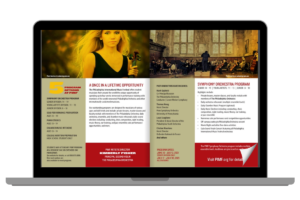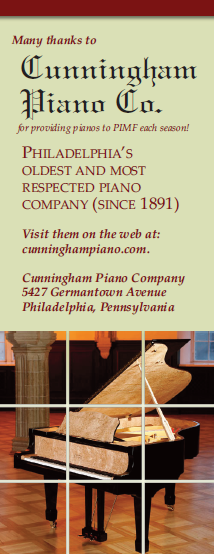The Power of Music Therapy
While we know that classical music is good for the soul, there’s ample evidence that listening to Beethoven and Mozart may be even better for the body. Classical music offers the perfect prescription for many modern-day maladies, with reputable research indicating that classical compositions can:
- Lower blood pressure;
- Produce empathetic feelings;
- Ease pain;
- Improve memory;
- Relieve anxiety;
- Build social relationships, particularly for dementia patients;
- Increase productivity; and
- Help people fall sleep (please, no jokes).
The ability of music, including classical music, to positively affect a person’s mood, health, and physical and intellectual performance is the focus of a special field called music therapy. We’ve covered music jobs in this space before, but here’s a deeper dive into a field where music education, instrumental training, performance experience and healing therapies intersect.
While many psychologists use music in their practices, music therapy is a separate branch with its own degree and credentialing requirements.
Music therapists serve a wide range of clients, including children, adolescents, adults, and the elderly. They treat conditions ranging from learning, developmental and cognitive disorders to substance abuse to brain injuries to physical disabilities and even chronic pain (whew!).
“In a nutshell, a music therapist is someone who uses the various elements of music (for example, rhythm, timbre, melody, harmony, lyrics, etc.) in the process of helping someone to change or grow in some way (for example, emotionally, behaviorally, physically, etc.),” according to the blog Mindful Music Therapist.
So what does that mean, exactly?
The American Music Therapy Association offers some examples:
- Work with Congresswoman Giffords to regain her speech after surviving a bullet wound to her brain.
- Work with older adults to lessen the effects of dementia.
- Work with children and adults to reduce asthma episodes.
- Work with hospitalized patients to reduce pain.
- Work with children who have autism to improve communication capabilities.
- Work with premature infants to improve sleep patterns and increase weight gain.
- Work with people who have Parkinson’s disease to improve motor function.
The power of music! How, then, to apply your musical training to this transformative health profession?
It’s obviously important to study music in depth – reading music, writing music, music theory, even singing lessons. Mastery of one or more instruments is helpful, though accompaniment-friendly piano and guitar are widespread in music therapy applications. If you know how to play a violin, that’s excellent: what music therapists bring into any particular patient’s session is limited only by their imagination and practical real-life conditions.
This video offers a glimpse into the workday of a music therapist in a hospital setting.
But make no mistake, as the website Careers in Psychology shows, music therapy requires some hardcore additional coursework in:
- Biology;
- Psychology;
- Physiology; and
- Social and behavioral sciences.
In their final two years of study, an aspiring music therapist must complete 1,200 hours of fieldwork as an intern in a health- or education-related setting. To be credentialed, a music therapist must pass an examination administered by the Certification Board for Music Therapists. While a BA is required, as with other technical specialties, a music therapist may pursue a master’s or doctoral degree.
As with most jobs in the therapeutic professions, demand for music therapists is expected to rise. Financial compensation can range from $20,000 to $135,000.
The satisfaction found in helping people is probably worth much more.




